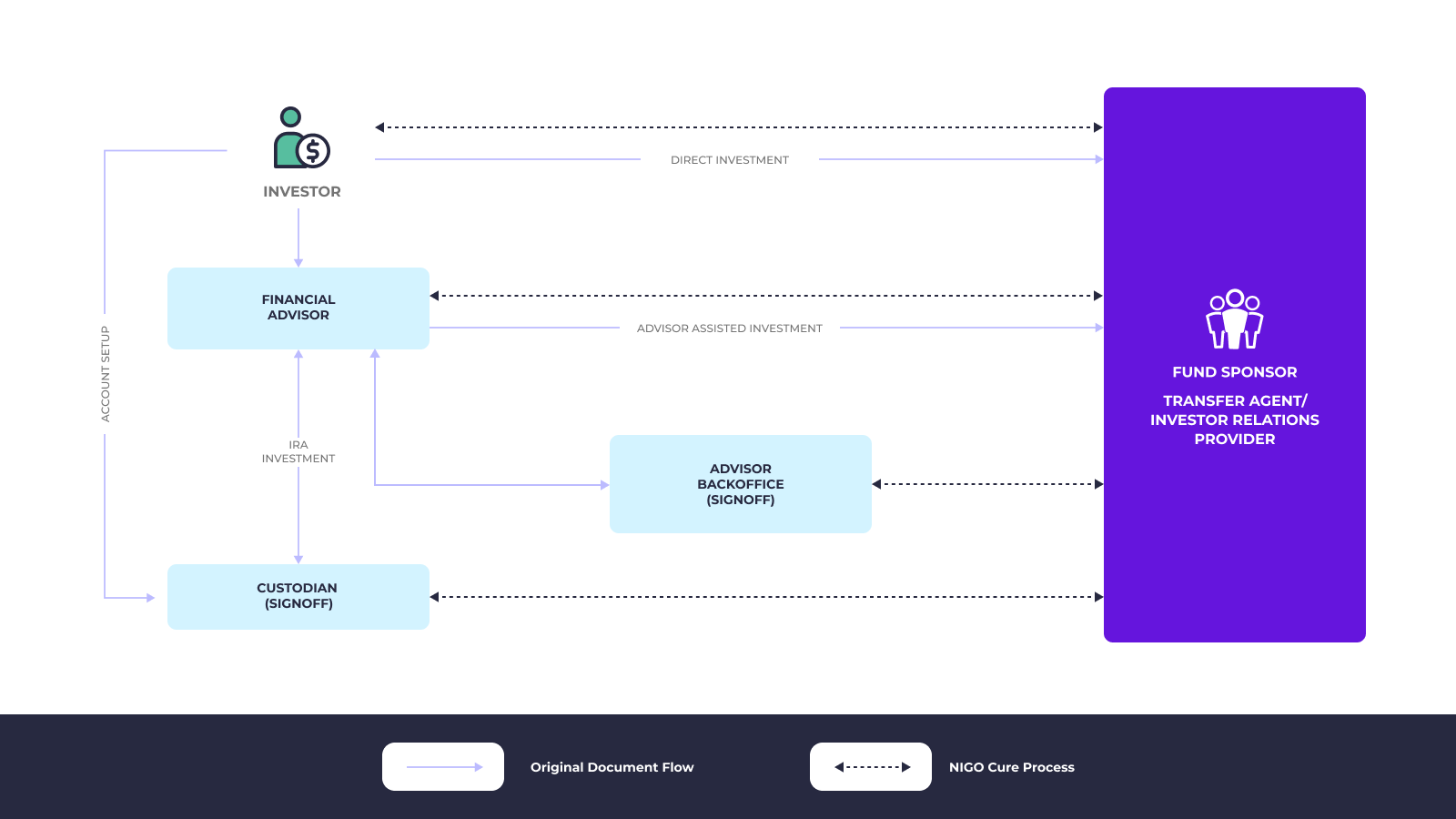What Is a Paper Subscription Document?
P rivate equity and venture capital fund investors often engage with a fund by completing paper subscription documents, detailing investment terms and commitments. The information provided, essential for fund operations, investor relations and compliance, outline investor obligations, fund strategies and regulatory disclosures. Investors provide personal information, financial details and sign binding agreements, affirming commitment to the fund’s objectives and terms. Accuracy and completeness are paramount, ensuring alignment between investor expectations and fund objectives. It is the investor’s first experience of the fund’s investor relations. Through this meticulous process, investors formalize their participation, enabling the flow of investor capital into promising ventures.
Processing a Subscription Document
Once an investor completes a subscription document, it is delivered to the fund sponsor or its transfer agent / investor relations provider for processing. The sponsor verifies the accuracy and completeness of the provided information, ensuring compliance with regulatory standards and fund requirements, scrutinizing financial details, validating investor identities and confirming adherence to subscription terms. The transfer agent / investor relations provider then enters the data into the fund’s digital record keeping system for ongoing activity management and investor relations. This must be a meticulous process, safeguarding against errors and discrepancies, maintaining the integrity of investor information. Once the subscription document is processed, the subscription data entry formalizes the investor’s participation, enabling the fund to deploy capital and the transfer agent / investor relations provider to commence ongoing investor relations.

Potential Problems
Processing a completed subscription document can encounter various errors and challenges, representing a challenge to investor relations from the start. Subscription documents can be long and complex. Errors in investor details, such as inaccuracies in personal or financial information will halt the verification process and investor admittance in the fund. Delays in processing can occur due to:
- Investor errors in filling out the subscription document
- Financial advisor errors in filling out the subscription document
- Custodian errors in review and approval of the subscription document
- Failure of a financial advisor’s back office to sign-off on a subscription document
A subscription document discovered to have errors or omissions will be flagged as Not In Good Order (NIGO) and must be returned to the source of the error for correction and completion. This is time consuming and not desirable for investor relations but necessary. Errors or omissions in documentation can result in regulatory scrutiny or legal liabilities for the fund if left unaddressed so correcting these issues promptly and accurately is crucial to regulatory compliance, operational efficiency and long-term investor relations within the fund.
Delays, Expense and Investor Relations Issues.
The process of correcting subscription document errors depends on how the investment was sold and the information that is incorrect or incomplete.
- The investor may have to be contacted to provide information or missing documents.
- The financial advisor may have to be contacted to complete information.
- Custodians may need to be sent copies for review and approval.
- Advisor back-office approval may have to be sought.
Any process of correction will delay the availability of investor funds for portfolio management and will come at a cost, whether in time spent by the fund sponsor in tracking down needed information or in actual charges if the correction is managed by the transfer agent / investor relations provider. NIGOs are common and a significant downside to the traditional subscription document for private equity and venture capital funds. Technological solutions can improve the accuracy of the transcription process from paper to digital format but as long as investors and financial advisors are filling in the original information with pen and ink, there will always be NIGOs.
Investor Relations Perspective
From an investor experience perspective, paper subscription documents are a problematic way to begin the investor relationship. Even if there are no issues with the process, most investors are used to secure digital experiences and prompt execution of financial processes. Paper subscription documents are increasingly seen as antiquated and unnecessary. Once essential information in the subscription document is digitized in the fund’s record keeping system, investor relations typically becomes a much more modern experience. The need for the paper documents seems odd to many. Still, in the world of private equity and venture capital, long-term and illiquid investments, the deliberate investment process of subscription documents is considered appropriate to many managers and remains common in the industry.



